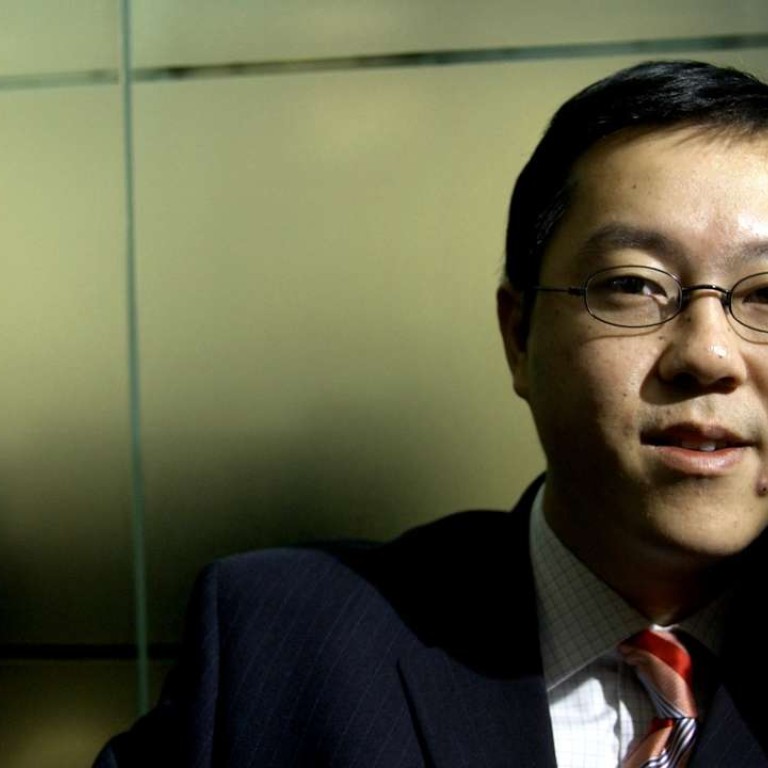
Spending on digital advertising in Hong Kong tipped to exceed traditional media campaigns’ share in a few years
Asia-Pacific digital advertising spending set to rise 22 per cent this year to US$69.38 billion
Digital advertising spending in Hong Kong is forecast to overtake expenditure on traditional media campaigns in the next few years, despite a lingering economic slowdown.
“I had previously predicted that the rapid shift of marketing budgets into more digital advertising platforms would happen by 2020. I was wrong because it will probably happen sooner,” Kevin Huang, the chief executive at Hong Kong digital advertising firm Pixels, said.
Citing data from an industry study published in February by the Hong Kong Advertisers Association and market measurement firm Nielsen, Huang said 72 per cent of advertisers in the city planned to increase their digital advertising spending this year.
Consumers in Asia spend more time on multiple screens throughout their day
“The industry expects digital to account for 41 per cent of all advertising budgets this year,” he said.
Total advertising spending in Hong Kong hit a record HK$49.9 billion last year, when leading industries increased their online and mobile campaigns.
“Consumers in Asia spend more time on multiple screens throughout their day,” Huang said. “The average consumer in the region spends about four hours each day watching videos on their smartphones, tablets, desktop and connected TV, which is more than the global average of three hours per day.”
Research firm eMarketer forecasts that digital advertising spending in the Asia-Pacific region will increase by 22 per cent this year to US$69.38 billion, up from an estimated US$56.84 billion last year.
Mainland China is the region’s biggest digital advertising market. It is projected to record US$39.34 billion in digital advertising spending this year, up from an estimated US$30.81 billion last year.
A sluggish economy, however, led to a 13 per cent fall in total advertising expenditure in Hong Kong during the first quarter of this year to HK$9.4 billion, down from HK$10.8 billion in the same period last year, according to data from media-monitoring firm admanGo.
The local advertising industry’s performance last quarter seems a far cry from earlier predictions of modest growth this year as marketers conducted more digital and mobile campaigns.
“While traditional media may have had a bad start this year, our clients are very bullish about their digital campaigns,” said Huang, who leads the city’s largest digital advertising agency.
“Hong Kong has seen this before during the Sars crisis in 2003, when my business grew like 200 per cent, and the global financial crisis in 2009. Digital [advertising] grew.”
The steady growth in Pixels’ digital advertising business eventually led to its acquisition by United States-based online marketing technology company Gravity4 in November.
The combined Gravity4 and Pixels business is predicted to post more than US$40 million in revenue this year from its Asia-Pacific operations.
Huang said Pixels introduced its “programmatic” advertising system in Hong Kong last month to help drive spending on digital campaigns in the city.
“Simply put, programmatic is an automated way to buy advertising which adds specific audience data on top to ensure that campaigns are relevant to their target audience,” he said. “We provide intelligence in these campaigns based on first-party data. Since we run hundreds of thousands of campaigns each month, we can make assumptions based on the user data we gather.”
Its programme automatically identifies the right audiences based on the advertiser’s criteria through the Pixels Ad Marketplace – a private adverting marketplace which lists more than 500 premium local websites and mobile apps curated by Pixels.
“Our mission is very simple. We want to give control back to advertisers and make sure that they understand what they are buying,” Huang said.

